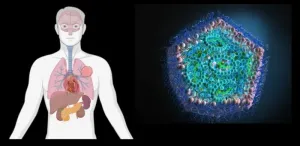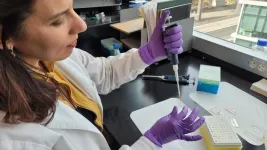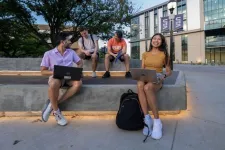(Press-News.org) Implementing bans on the advertising, promotion, and sponsorship of tobacco products is linked to 20% lower odds of smoking, and 37% lower risk of taking up the habit, reveals a pooled data analysis of the available research, published online in Tobacco Control.
The findings indicate that these bans do influence behaviour, lending further weight to calls for their wider international implementation and enforcement, conclude the researchers.
In 2019 alone, more than a billion people around the globe regularly smoked tobacco, and smoking caused nearly 8 million deaths, note the researchers.
To curb the toll taken by smoking, the World Health Organization set out guidance for countries on how to adopt comprehensive tobacco control policies in its Framework Convention on Tobacco Control (FCTC), explain the researchers.
Yet only 17 of the 182 parties involved have implemented comprehensive bans of all the listed types of tobacco advertising, promotion, and sponsorship, while 37 haven’t implemented any bans at all, they add.
To update and strengthen the evidence base, amid a rapidly evolving media and advertising landscape, the researchers explored the impact of comprehensive tobacco product advertising, promotional, and sponsorship bans on smoking prevalence, uptake, and cessation, drawing on the most recently published research up to April 2024.
After excluding studies that were duplicates, poorly designed, or ineligible, they included 16, all of which were published in English, and involved around half a million participants, in their pooled data analysis.
Two studies analysed the impact of bans on current smoking over a period of less than 5 years, 5 over a period of 5–10 years, and 3 over a period of more than 10 years.
Smoking uptake was evaluated for fewer than 5 years in 2 studies, and for more than 10 years in another 2. All 3 studies looking at smoking cessation evaluated the impact of bans over 5–10 years.
Pooled data analysis of all the study results showed that bans were associated with a 20% lower prevalence of smoking and a 37% lower risk of smoking uptake.
But there was no association between the bans and smoking cessation, possibly because of the small number of studies assessing this and the relatively high attrition rates noted in those studies, suggest the researchers.
Further detailed analysis revealed that the associations found between the bans and smoking prevalence differed by duration of the evaluation period. For example, the reduction in this was greater in studies evaluating the policy over 5 to 10 years than in those evaluating shorter periods.
Twelve (81%) of the included studies had a moderate risk of bias, while 3 (19%) had a high risk, and most of the studies assessed only partial bans, acknowledge the researchers.
Most of the included studies were also of observational design with no direct comparators, so limiting their ability to make causal inferences.
“Tobacco advertising and promotion increase awareness and receptivity towards cigarettes and provoke positive attitudes towards tobacco smoking. Youth and young adult populations are particularly susceptible to the negative influences of tobacco advertisement as exposure to tobacco marketing more than doubles their chances of smoking initiation,” explain the researchers.
“Our results suggest that [advertising, promotional, and sponsorship bans] can be effective in reducing smoking prevalence and the risk of smoking uptake…..Given the findings of this review, it is likely that comprehensive bans would have greater impacts on smoking behaviour,” they write.
And they conclude: “The findings reinforce the need for countries to implement and enforce existing [tobacco advertising, promotional, and sponsorship] bans to reduce tobacco smoking and its consequences.”
END
Tobacco advertising + sponsorship bans linked to 20% lower odds of smoking
And 37% lower risk of smoking uptake, indicating these bans’ influence on behaviour. More countries should adopt these policies to save lives, urge researchers
2025-01-14
ELSE PRESS RELEASES FROM THIS DATE:
Vascular ‘fingerprint’ at the back of the eye can accurately predict stroke risk
2025-01-14
A vascular ‘fingerprint’ on the light sensitive tissue layer at the back of the eye—the retina—can predict a person’s risk of stroke as accurately as traditional risk factors alone, but without the need for multiple invasive lab tests, finds research published online in the journal Heart.
The fingerprint, comprising 29 indicators of vascular health, is a practical and readily implementable approach that is particularly well suited for primary healthcare and low-resource settings, conclude the researchers.
Stroke affects around 100 million people around the globe and ...
Circulation problems in the brain’s seat of memory linked to mild cognitive impairment in older adults
2025-01-14
Mild cognitive impairment is linked to blood vessel dysfunction in the brain’s temporal lobes — the seat of memory — according to a new USC-led study.
The findings, seen in people with and without signs of amyloid buildup in the brain, suggest that microvascular trouble may be an important, early biomarker for dementia as well as a potential target for therapy.
The research, involving scientists from multiple universities, appears in the journal Neurology.
“We’re studying ...
Oregon State receives $11.9 million from Defense Department to enhance health of armed forces
2025-01-13
PORTLAND, Ore. – The U.S. Department of Defense has awarded up to $11.9 million to Oregon State University to invent new drug delivery technologies for protecting members of the military from a range of health threats in combat areas.
Once designed, developed and tested, the technologies could also be applied as needed within the general public, said OSU College of Pharmacy nanomedicine researcher Gaurav Sahay, the project leader.
The award comes from the Defense Advanced Research Projects Agency through its Hermes program, whose goal is finding new ways to deliver therapeutic agents throughout the body with exceptional ...
Leading cancer clinician, researcher Dr. Jenny Chang to lead Houston Methodist Academic Institute
2025-01-13
Esteemed cancer clinician-scientist Jenny Chang, M.D., MBBChir, MHCM, has been chosen to lead the Houston Methodist Academic Institute. She will serve as executive vice president, president and CEO, and chief academic officer.
In her more than 15 years at Houston Methodist, Chang helped transform the Dr. Mary and Ron Neal Cancer Center into one of the top-20 ranked cancer centers in the country.
Chang, the Emily Herrmann Presidential Distinguished Chair in Cancer Research, was selected following a national search and succeeds H. Dirk Sostman, M.D., FACR, who will retire next month after two decades of leadership at Houston Methodist.
Chang’s ...
Engineering quantum entanglement at the nanoscale
2025-01-13
Physicists have spent more than a century measuring and making sense of the strange ways that photons, electrons, and other subatomic particles interact at extremely small scales. Engineers have spent decades figuring out how to take advantage of these phenomena to create new technologies.
In one such phenomenon, called quantum entanglement, pairs of photons become interconnected in such a way that the state of one photon instantly changes to match the state of its paired photon, no matter how far apart they are.
Nearly 80 years ago, Albert Einstein referred to this phenomenon as "spooky action at a distance." Today, entanglement is the subject of research ...
Researchers develop breakthrough one-step flame retardant for cotton textiles
2025-01-13
Although extremely flammable, cotton is one of the most commonly used textiles due to its comfort and breathable nature. However, in a single step, researchers from Texas A&M University can reduce the flammability of cotton using a polyelectrolyte complex coating. The coating can be tailored for various textiles, such as clothing or upholstery, and scaled using the common pad-dry coating process, which is suitable for industrial applications. This technology can help to save property and lives on a large scale.
“Many of the materials in our ...
New study identifies how blood vessel dysfunction can worsen chronic disease
2025-01-13
Researchers at Oregon Health & Science University have uncovered how specialized cells surrounding small blood vessels, known as perivascular cells, contribute to blood vessel dysfunction in chronic diseases such as cancer, diabetes and fibrosis. The findings, published today in Science Advances, could change how these diseases are treated.
The study, led by Luiz Bertassoni, D.D.S., Ph.D., founding director of the Knight Cancer Precision Biofabrication Hub and a professor at the OHSU Knight Cancer Institute and ...
Picking the right doctor? AI could help
2025-01-13
Years ago, as she sat in waiting rooms, Maytal Saar-Tsechansky began to wonder how people chose a good doctor when they had no way of knowing a doctor’s track record on accurate diagnoses. Talking to other patients, she found they sometimes based choices on a physician’s personality or even the quality of their office furniture.
“I realized all these signals people are using are just not the right ones,” says Saar-Tsechansky, professor of information, risk, and operations management at Texas McCombs. “We were operating in complete darkness, like there’s no transparency on these things.”
In new research, she uses artificial ...
Travel distance to nearest lung cancer facility differs by racial and ethnic makeup of communities
2025-01-13
Embargoed for release until 5:00 p.m. ET on Monday 13 January 2025
@Annalsofim
Below please find summaries of new articles that will be published in the next issue of Annals of Internal Medicine. The summaries are not intended to substitute for the full articles as a source of information. This information is under strict embargo and by taking it into possession, media representatives are committing to the terms of the embargo not only on their own behalf, but also on behalf ...
UTA’s student success strategy earns national acclaim
2025-01-13
The University of Texas at Arlington has been recognized nationally for its commitment to student success and economic mobility, being named a winner in the inaugural Postsecondary Success Recognition Program (PSRP), a U.S. Department of Education initiative. This program honors institutions that excel in enrolling underserved student populations, supporting successful student transfers and completions and preparing graduates for careers that promote economic mobility.
UTA was one of only three bachelor’s degree–granting institutions across the nation ...
LAST 30 PRESS RELEASES:
Enzymes work as Maxwell's demon by using memory stored as motion
Methane’s missing emissions: The underestimated impact of small sources
Beating cancer by eating cancer
How sleep disruption impairs social memory: Oxytocin circuits reveal mechanisms and therapeutic opportunities
Natural compound from pomegranate leaves disrupts disease-causing amyloid
A depression treatment that once took eight weeks may work just as well in one
New study calls for personalized, tiered approach to postpartum care
The hidden breath of cities: Why we need to look closer at public fountains
Rewetting peatlands could unlock more effective carbon removal using biochar
Microplastics discovered in prostate tumors
ACES marks 150 years of the Morrow Plots, our nation's oldest research field
Physicists open door to future, hyper-efficient ‘orbitronic’ devices
$80 million supports research into exceptional longevity
Why the planet doesn’t dry out together: scientists solve a global climate puzzle
Global greening: The Earth’s green wave is shifting
You don't need to be very altruistic to stop an epidemic
Signs on Stone Age objects: Precursor to written language dates back 40,000 years
MIT study reveals climatic fingerprints of wildfires and volcanic eruptions
A shift from the sandlot to the travel team for youth sports
Hair-width LEDs could replace lasers
The hidden infections that refuse to go away: how household practices can stop deadly diseases
Ochsner MD Anderson uses groundbreaking TIL therapy to treat advanced melanoma in adults
A heatshield for ‘never-wet’ surfaces: Rice engineering team repels even near-boiling water with low-cost, scalable coating
Skills from being a birder may change—and benefit—your brain
Waterloo researchers turning plastic waste into vinegar
Measuring the expansion of the universe with cosmic fireworks
How horses whinny: Whistling while singing
US newborn hepatitis B virus vaccination rates
When influencers raise a glass, young viewers want to join them
Exposure to alcohol-related social media content and desire to drink among young adults
[Press-News.org] Tobacco advertising + sponsorship bans linked to 20% lower odds of smokingAnd 37% lower risk of smoking uptake, indicating these bans’ influence on behaviour. More countries should adopt these policies to save lives, urge researchers




